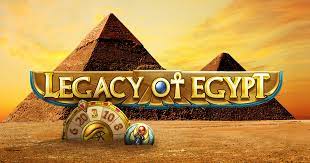Lotteries come in various forms, each offering unique structures, odds, and rewards. Understanding the different types can help players choose the best fit for their gambling preferences.
State and National Lotteries
State and national lotteries are perhaps the most recognized forms of lottery. They are usually government-run and are designed to raise funds for public projects, education, and various community services.
These N666 lotteries typically feature enormous jackpots, especially in high-stakes draws like Powerball or Mega Millions. The allure of potentially winning vast sums attracts millions of participants, with ticket sales contributing to state revenues. However, it’s essential to note that these lotteries also have significant odds against winning the grand prize, often reaching several million to one.
Despite the low probability, the excitement generated by massive jackpots can lead to increased interest and participation. Promotional campaigns around major draws further fuel this frenzy, enticing casual players and dedicated enthusiasts alike.
Scratch-Off Tickets
Scratch-off tickets are another popular form of lottery, offering immediate gratification. Players purchase a card, scratch off the surface, and instantly know if they’ve won.
This instant feedback loop appeals to those who prefer quick results without waiting for a draw. Scratch-off games vary widely in price, themes, and prize structures. Some offer smaller prizes for frequent wins, while others may have substantial jackpots, creating a diverse landscape for players.
However, the odds of winning on scratch-off tickets can vary significantly depending on the game. Generally, the house edges tend to be higher than in traditional draw-based lotteries. Therefore, while they provide immediate fun, players should approach them with caution and an awareness of their odds.
Online Lotteries
With the rise of technology, online lotteries have gained immense popularity. These platforms allow players to enter lottery draws, purchase tickets, and even check results from the comfort of their own home.
Online lotteries often feature exclusive games, promotions, and syndicates that may be unavailable through traditional means. Additionally, they can attract a broader audience, making it easier for players to connect globally. However, it’s crucial for users to exercise caution and ensure they engage with reputable platforms, as the online space can also harbor unscrupulous operators.
While online lotteries maximize accessibility, they also require discipline. The convenience of purchasing tickets at any time can make it easy to lose track of spending. As with all forms of gambling, responsible play is paramount to ensuring a positive experience.
Raffles and Charitable Lotteries
Raffles and charitable lotteries often serve dual purposes—fun and fundraising. Organizations such as schools, nonprofits, and community groups frequently host raffles to raise money for specific causes.
Participants usually buy tickets for a chance to win products, cash, or experiences, contributing to worthwhile initiatives. This structure fosters a sense of community involvement and encourages support for local programs. Consequently, many find joy in participating, knowing that their contributions support worthy causes.
However, it’s essential for participants to understand how proceeds are allocated. Transparency fosters trust and enhances the overall experience. Engaging in charitable lotteries can evoke feelings of goodwill while still offering the thrill of potentially winning a prize.
Overall, exploring the various types of lotteries enriches the player’s experience and helps them make informed choices aligned with their preferences and values.



